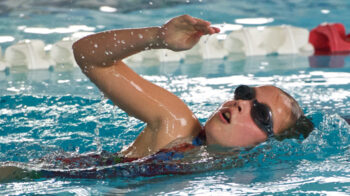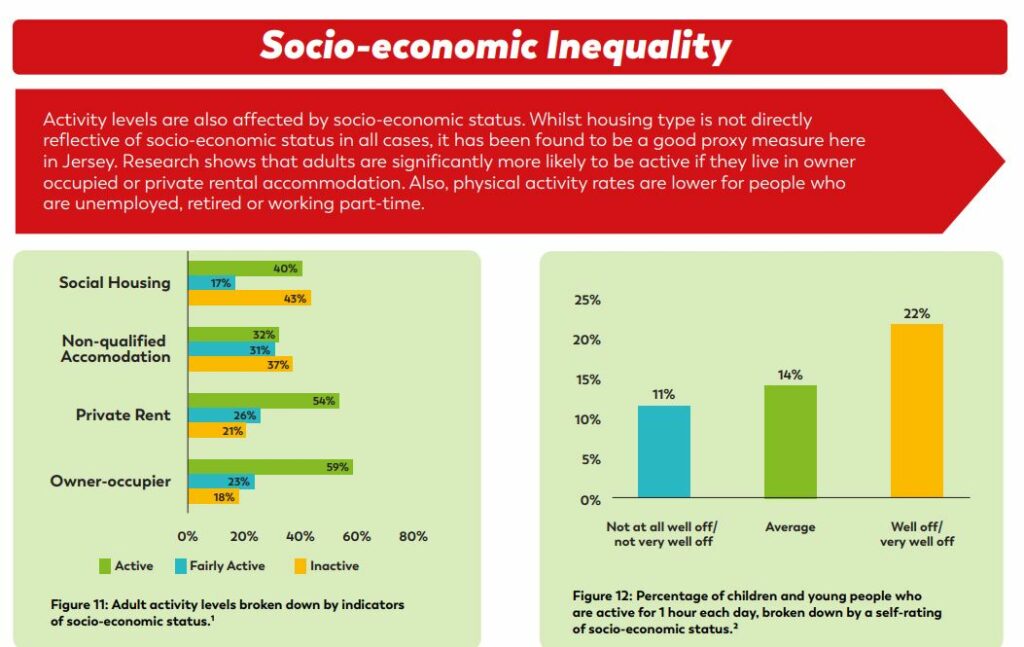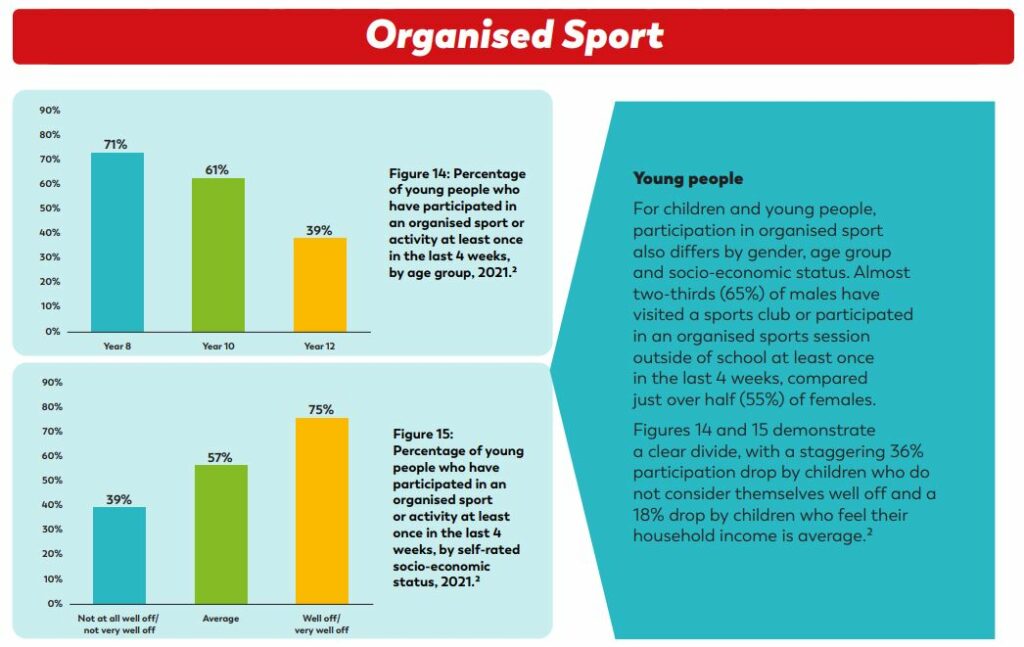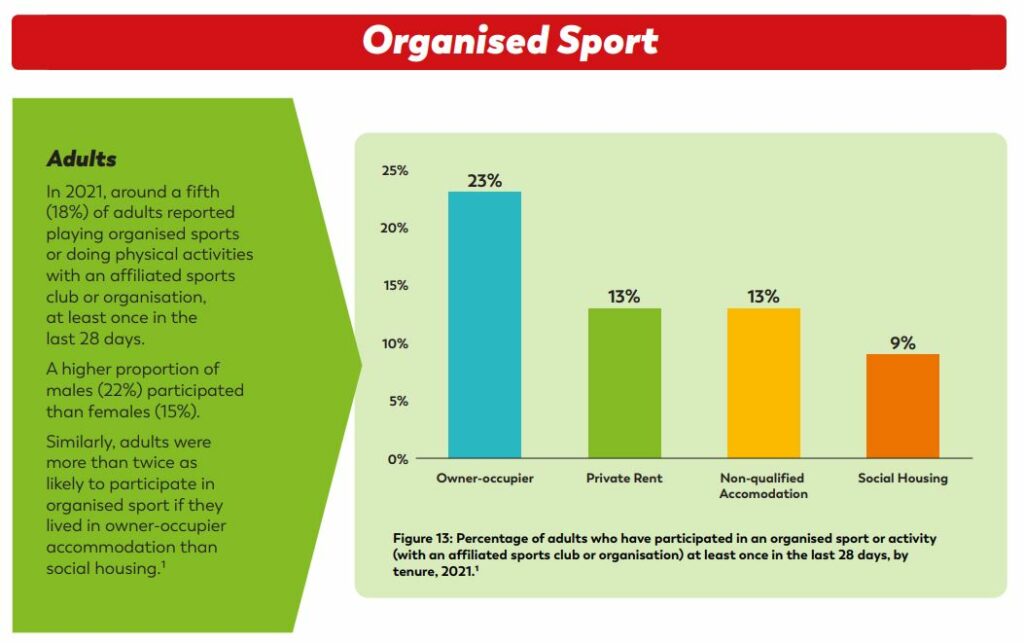INCLUSION IN SPORT
LOWER SOCIO-ECONOMIC COMMUNITIES

Data tells us there are significant inequalities that exist in Jersey for islanders to access sport and physical activity in correlation with their socio-economic status.
In the Jersey Opinions and Lifestyle Survey (2021), housing status was used as a proxy measure of socio-economic status alongside self-reporting as respondents declared how they perceived their circumstances as ‘not at all well off’, ‘not well off’, ‘average’, ‘well off’ or ‘very well off’ as indicators of their own socio-economic status.

Results showed islanders are significantly less likely to play organised sport and be active if they have a lower income. Adults living in social housing are 50% less likely to play sport and 19% less likely to be active than those who own their own home. This trend is mirrored where children and young people rate themselves as ‘not well off’ proving to be 30% less likely to play sport than children who self-rate as ‘well-off’.


This data highlights that there are a significant number of islanders with lower socio-economic status who could reap huge health benefits from being more active. There is plenty of work to be done to level the playing field, ensuring accessibility to sport and physical activity is for all, not just exclusively to those of higher socio-economic groups.
EXAMPLES OF LOW-COST/FREE OPPORTUNITIES TO GET ACTIVE
- Walking / hiking: WALK MORE • Jersey Sport – Move More
- Running: RUN MORE • Jersey Sport – Move More
- Cycling: CYCLE MORE • Jersey Sport – Move More
- Swimming: SWIM MORE • Jersey Sport – Move More
- Body weight exercises: Jersey Sport CI – YouTube
- 300+ local sports organisations: Jersey Sport – SPORTS DIRECTORY
BARRIERS TO PARTICIPATION
- Cost of sporting equipment, kit and travel to training, events or competitions
- Cost of sessions and club membership fees
- Fear of judgement of their financial status or background
- Likely to experience higher levels of obesity due to poor diet due to struggling to afford nutritious food
- Lack of free time to exercise due to increased work commitments
- Lack of outside space to practice a sport or be physically active
STRATEGIES TO ENCOURAGE PARTICIPATION
- Ask your participants how you can make your sport setting a safe, welcoming and inclusive environment for them to be and stay involved
- Establish a ‘Hardship Fund’ or similar initiative that participants can access for financial support
- Review the costs of your sport offer and offer low-cost options or concessions
- Set up a pre-loved kit ‘shop’ at your club with low cost, free or swappable items
- Offer free places or membership fees for lower income families and individuals
- Use central locations or facilities close to bus routes to host your sport offer
- Offer free or reduced membership fees or facility hire for sport volunteers
- Establish an equipment loan scheme that is free or low cost, particularly aimed at beginners or returners to sport
- Collaborate with local charities to offer opportunities for individuals in need
SPORTS ACCESS PROGRAMME
Jersey Sport are delighted to launch the new SPORTS ACCESS Programme, which will distribute £20,000-40,000 to local sport organisations to support equal access for young islanders to participate in sport in 2025. The initiative has been designed to reduce the known barriers to sport and physical activity by providing financial support to allow new or returning participants (0-17) to access sport. Funding can be used to pay for membership, registration, subscription or participation fees, as well as necessary kit and equipment.
This initiative’s seed funding has been gratefully provided by the Philip Gower Foundation and the Barry Burns Foundation.
